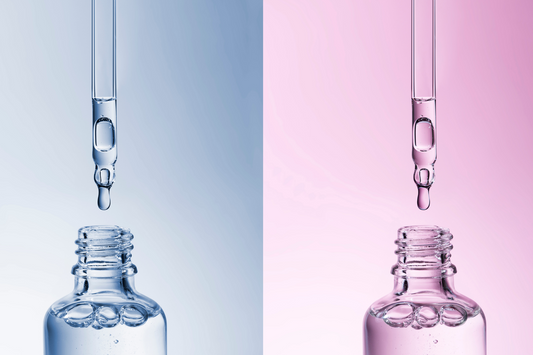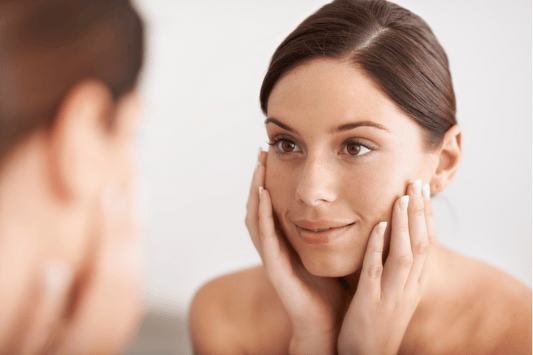Hairspray can be your best friend when it comes to locking in your hair styles and taming your flyaways, but are there more dangers behind using it than meets the eye? Let’s clear up some common misconceptions about using this convenient hair product.
What is Hairspray Made Of?
Most hairsprays are a mix of polymers, propellants, fragrances, etc. mixed together to create a long lasting hold on your hair. Some popular ingredients in common drugstore hair sprays include:
- Polyvinylpyrrolidone aka PVP
- Acrylates
- Dimethicone
- Citric Acid
- Ethanol
The most popular polymers used in hairsprays are Polyvinylpyrrolidone and Polydimethylsiloxane. These two are responsible for hair spray's iconic tackiness and strong-hold on your locks.
Hairspray Dangers and Don’ts
Unless you are going through a full can or even multiple cans of hairspray a day, hair spray should not be detrimental to your health. Like any aerosol can, there are long term dangers to the environment (as they cause the ozone to deplete) as well as your lungs if inhaled directly, but if you are applying hair spray correctly and modestly, you shouldn’t worry.
Try to avoid brushing through your hair when there’s hair spray already locked into your strands. This brushing can potentially lead to breakage if you are too aggressive. If you have to fight your brush through your hair sprayed locks, there’s a chance you are damaging your strands. The lower half of your hair is already your most fragile, so you should practice gentle hair care especially at the ends.
Hair spray poisoning is also extremely rare. In the case you have directly inhaled a generous amount of hair spray into your lungs or even in your mouth or eyes, seek immediate medical attention and professional help.
What About Other Aerosols? Does Dry Shampoo Cause Hair Loss?
Similarly, to hair spray, dry shampoo should also not be a direct concern to your hair health. Dry shampoo is meant to prolong your time in between washing your hair, and some can even help cleanse your roots as well. As it commonly comes in aerosol form, you should note that there can be long term effects to the environment or your lungs if you are inhaling dry shampoo directly - but as long as you are using it correctly and not excessively, you do not have to fret.
In regards to hair loss with dry shampoo, make sure that you are properly cleansing your scalp of any backup or residue when you are washing your hair. If you use dry shampoo every day, it is important that you unclog your pores and allow your hair follicles to “breathe”. If you aren’t cleansing your scalp, it can lead to dandruff and excessive scalp oiliness - these sensations often cause people to itch and tug at the roots which can lead to hair damage.
Hairspray Do’s
If you are using hair spray regularly, it can cause build-up on your strands. To prevent your hair from feeling too stiff, make sure you are washing out excess product and cleansing your scalp thoroughly during your hair washing routine.
As many hair sprays contain ethanol for drying purposes, make sure to give your hair some extra love if you are using many different styling products made with alcohol. Excessive amounts of ethanol can cause your hair to dry out, which may eventually lead to brittle hair. Consider using a nourishing hair oil to your ends before applying hair spray or incorporating leave-in conditioners to prevent dry hair.
Conclusion
Not all hair sprays contain the same ingredients, so it is best you remain mindful when shopping for a hairspray if there are ingredients you are looking to avoid. All in all, hair spray is not toxic to your hair, but it is best if you do not abuse it. Applying hair spray (and washing it out thoroughly) once a day is certainly not something to worry about, but if you are somehow using more than a bottle on yourself a day, it could potentially lead to harmful effects on your hair.
If you’re hoping to better support healthy hair, try considering the tips and facts we’ve listed above when choosing a hair product — even better, work a little bit of our Hair Revival Serum into your roots. With a clinically tested formula that’s supported by dermatologists, your roots can finally get the reawakening they deserve.





